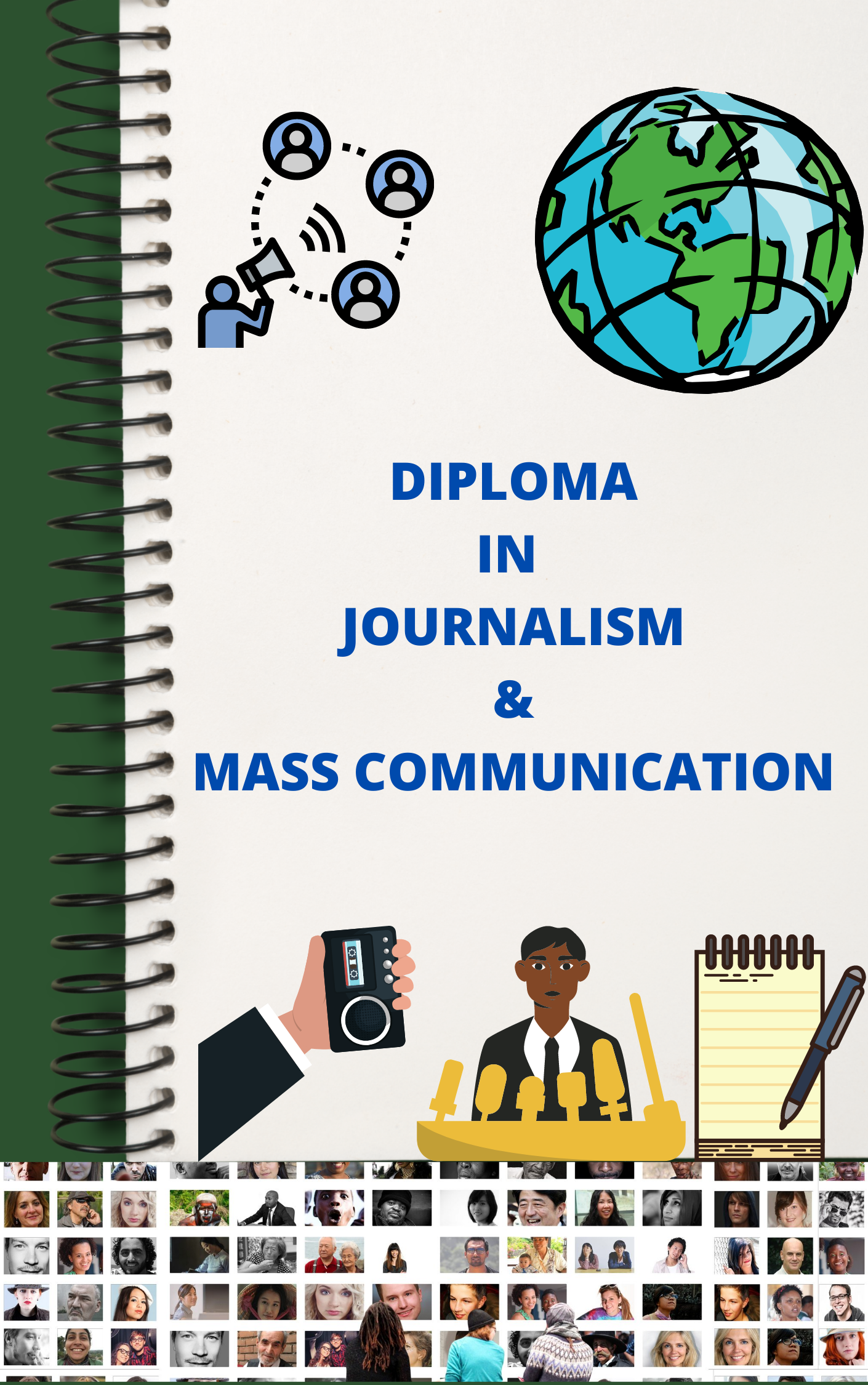DIPLOMA IN JOURNALISM AND MASS COMMUNICATION

About Course
What Does a Journalist Do?
Journalists analyze and interpret facts and information about local, national and international events and report them to the public. If you’re interested in this career, the first question that might come to mind is what education is needed to become a journalist? Most journalists learn from experience or complete a Diploma’s degree programs like this to prepare for careers in either print or broadcast journalism. Work experience is important for aspiring journalists, so most diploma programs like this include an internship, we shall give you apprioprate assistance for this.
Learning Outcomes
The faculty has identified five broad standards of performance, or Student Learning Outcomes, that it prepares students to meet by the time of their graduation.
University of Brazil, Campinas Journalism graduates are:
- Capable of entry-level media work in one of the major’s areas of emphasis.
This level of professionalism includes the following characteristics:- the ability to think critically, creatively and independently
- the ability to express oneself clearly, both in writing and orally
- the ability to carry out journalistic research and interviews
- the ability to prepare content for news media outlets
- the ability to meet deadlines
- the ability to competently use technology appropriate to the medium
- Informed about journalistic ethics and capable of articulating an ethical decision.
Graduates understand professional codes of ethics and can apply them to ethical dilemmas faced by journalists. Employing personal as well as professional ethics, they are prepared to make thoughtful decisions from among alternatives and are capable of defending those decisions. - Able to explain and understand the media law, their rights and responsibilities.
Graduates understand the historical and legal significance of the journalism, the traditional role of journalism as society’s watchdog, and the rights and responsibilities of journalists. - Conversant about contemporary media issues.
Because the present cannot be discussed intelligently without an awareness of and appreciation for the past, implicit in this standard is the graduates’ understanding of their professional roots. They are familiar with the issues now facing journalists and those likely to face journalists, particularly those being written and talked about by news media practitioners, users, observers and critics. - Prepared for a diverse and multi-cultural world and workplace.
Our graduates recognize that they live and work in a world characterized by difference and change, and they recognize the challenges these present to themselves and to journalism.
Course Content
INTRODUCTION TO JOURNALISM
-
Introduction to Journalism
00:00 -
Did you enjoy the lecture?
FREELANCE JOURNALISM
INVESTIGATIVE JOURNALISM
INTERVIEW
MEDIA LAW AND ETHICS
CASE STUDY
JOURNALISM LECTURE TAKE HOME PDF
Student Ratings & Reviews

No Review Yet

